Spotlight: Maeve Gilchrist
Edinburgh born harpist and composer Maeve Gilchrist has taken the Celtic (lever) Harp to new levels of performance and visibility. Maeve tours internationally as a solo artist and maintains a variety of projects. Her most recent independently-released album, The Harpweaver, was described by the Irish Times as “buoyant, sprightly and utterly beguiling….a snapshot of a musician at the top of her game.” Maeve is the co-music director of the WGBH holiday show, a Christmas Celtic sojourn, and the co-artistic director of the brand new Rockport Celtic Music festival – an innovative new festival focused on cross-curation and the outer-fringes of Celtic Music.
How did you decide to become a musician? What drew you to your instrument?
It's a family affliction! I have a number of aunts and cousins who play the Irish Harp. Although my mother is from Ireland, I grew up in Edinburgh, Scotland, immersed in the rich traditional music scene it had to offer. The (Celtic) harp is also a common instrument in traditional Scottish folk music so, between its presence in my community and the family connection to the instrument, it wasn't an alien choice for me.
The rich community of the folk-scene in Scotland was as much a draw for me as the instrument. As a kid I enjoyed the fun social elements – meeting other young traditional musicians and jamming together, making all kinds of mischief! This idea of music as a deep form of connectivity is integral to folk music across the globe and stayed at the forefront of my practice even as it has branched out from my traditional roots.
When did you first work with Silkroad? And if you remember, what was the project?
I first worked with Silkroad as a faculty artist for their Global Musician Workshop in 2016 at DePauw University in Greencastle, Indiana. I was immediately struck by the joy of the community! It was the first music camp I'd been to where the focus was as much about the philosophy behind the notes as on the music itself. I loved the conversations about collaboration, a practice of deep listening, and the use of music as a conversational tool. I was so buoyed up by the whole experience and the big hearts of the folk I'd met there and am delighted to have continued a working-relationship with Silkroad ever since.
What is one of your favorite memories while working with Silkroad?
I remember a moment from that very first week at the Global Musician Workshop. The wonderful tenor-saxophone player Seamus Blake was jamming out with a whole crowd of percussion students from around the globe. The old-time fiddle player, Bruce Molsky, grabbed my hand, and we ended up two-stepping around the room, enveloped by this wonderful cacophony of multicultural sounds! We had Jazz, we had Middle-Eastern music, and here I was, a Scottish harp-player dancing with a fiddler from the Bronx steeped in the music of Southern Appalachia! It was bonkers, but it worked! That moment seems like a perfect analogy for the joy and connection that Silkroad represents.
What makes you excited or inspires you as an artist and what kind of projects do you love working on?
I love digging deep into imaginative soundscapes and imagination and the idea of creating a world into which the listener can step. When I compose, I'm not just thinking of the notes, but I'm very focused on ambience, the sonic-framing of the music, and how I can make this aural experience as immersive as possible for the listener. Every project is an opportunity to create something beautiful and unique. A new world.
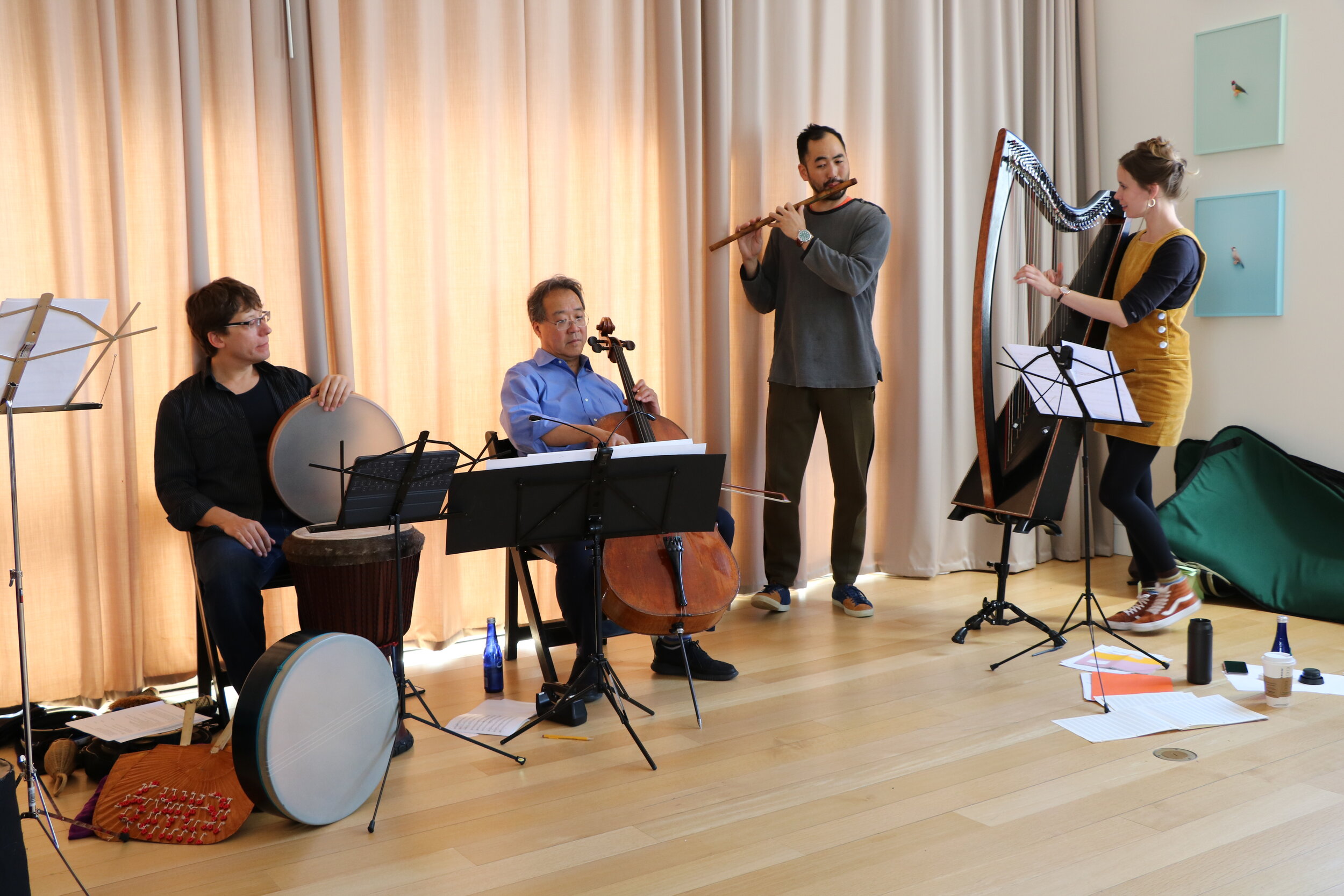
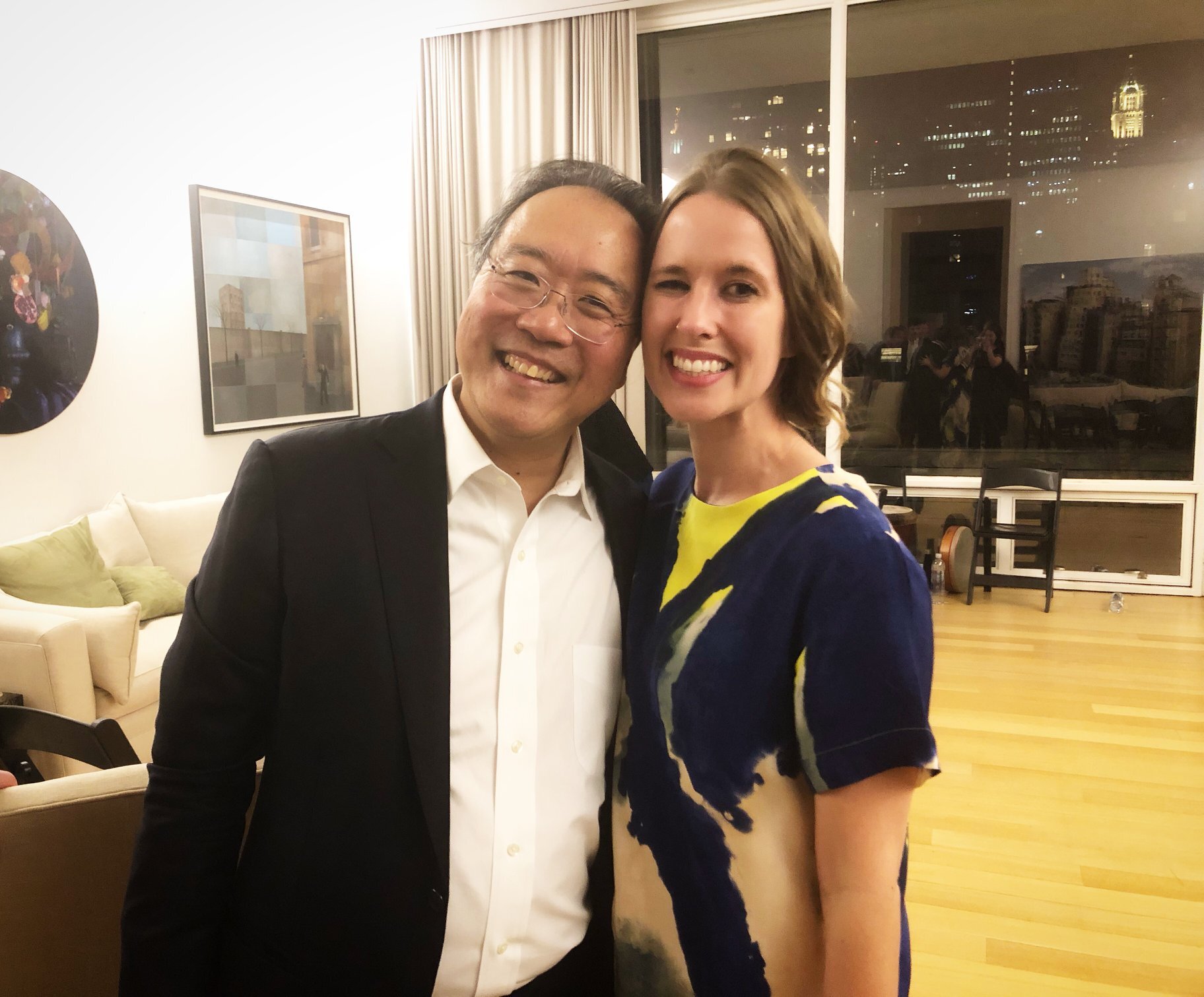
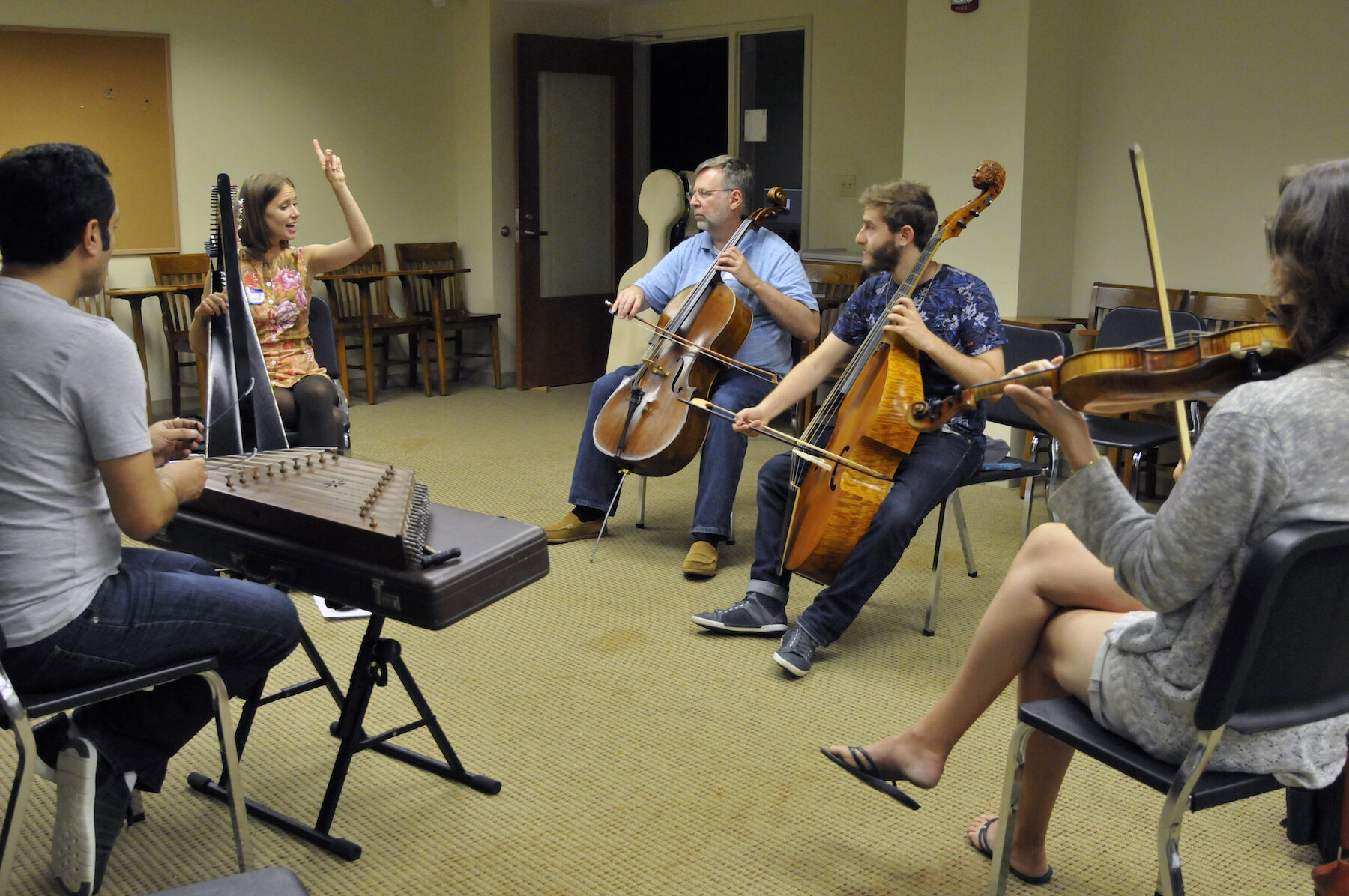
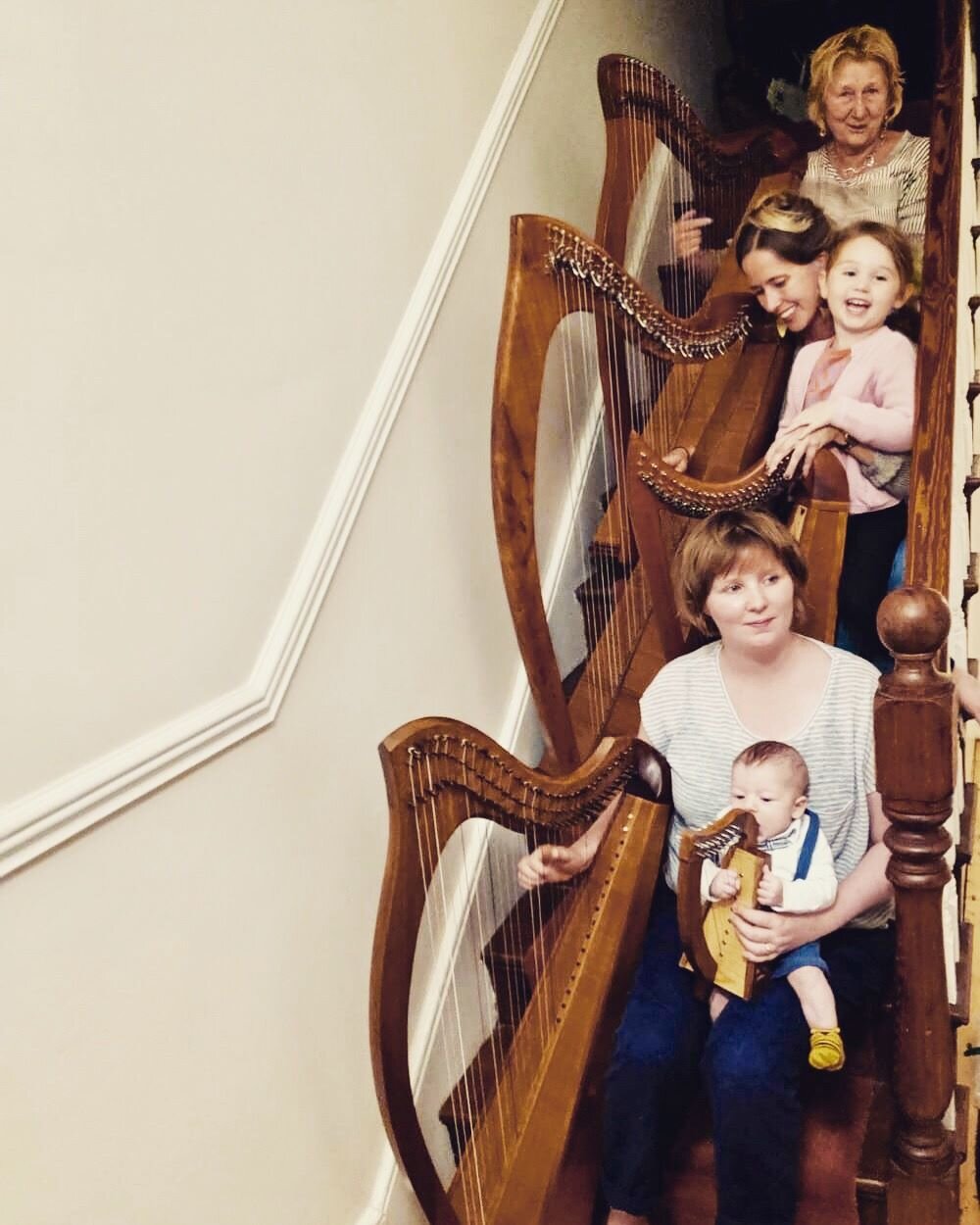
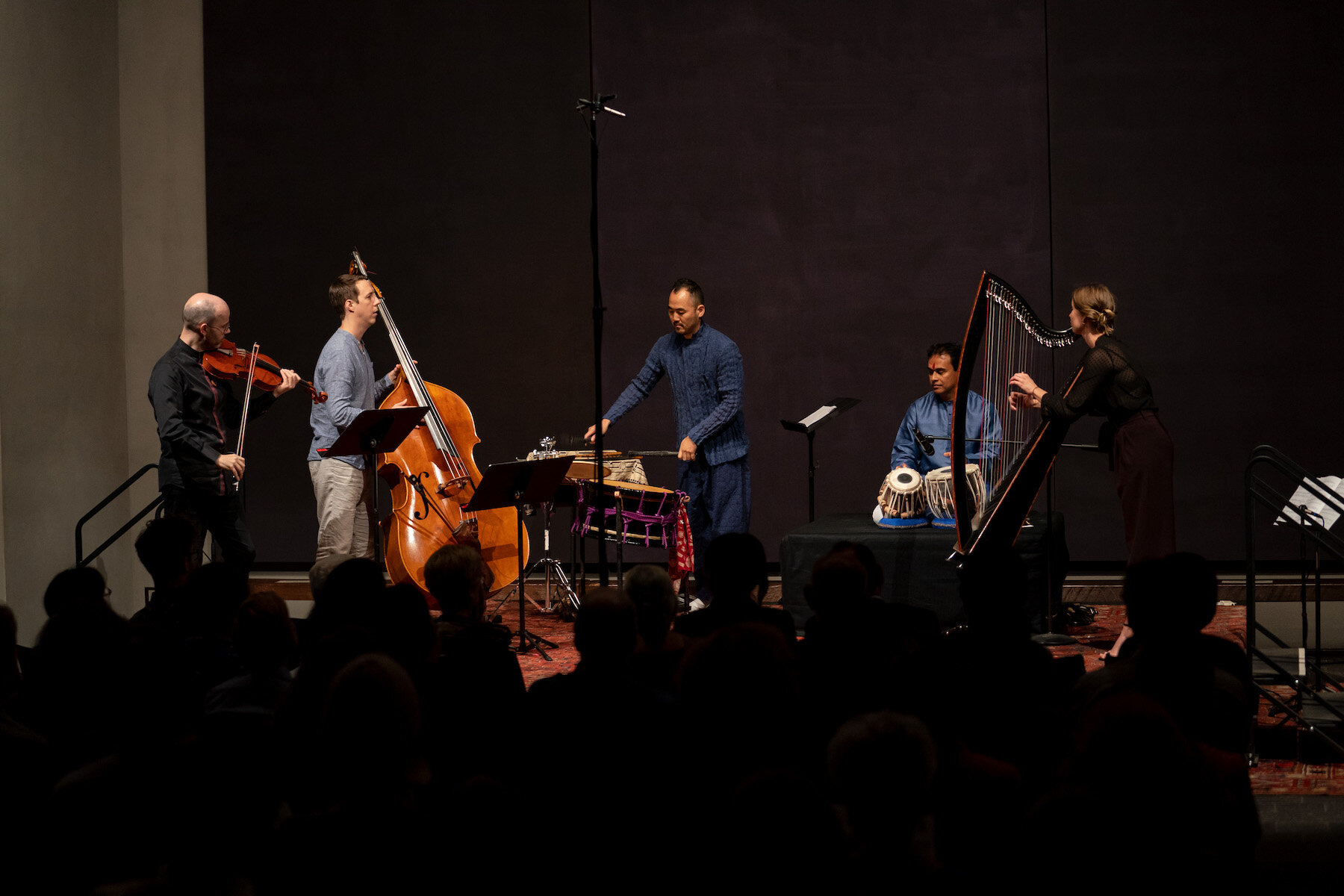
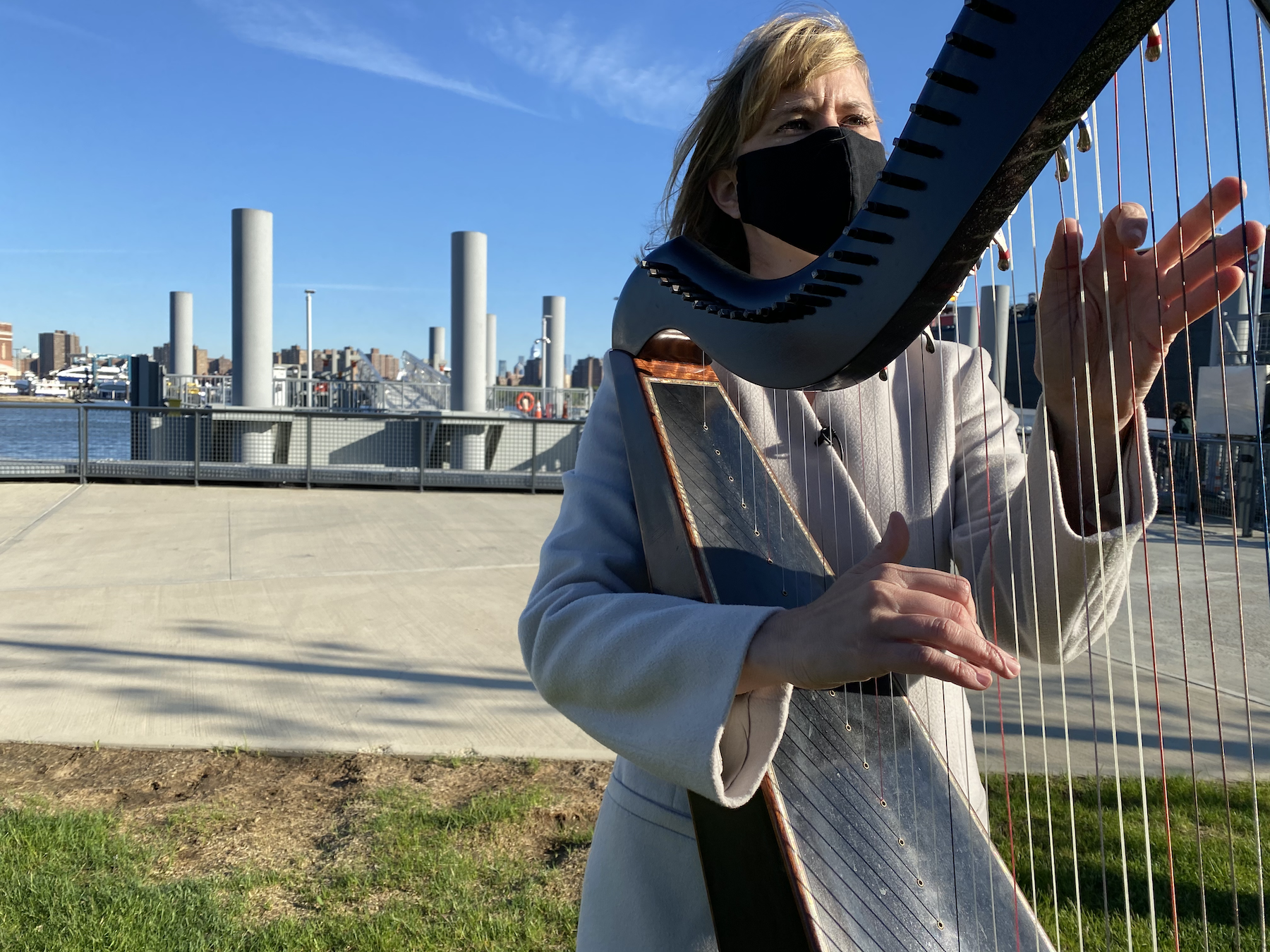
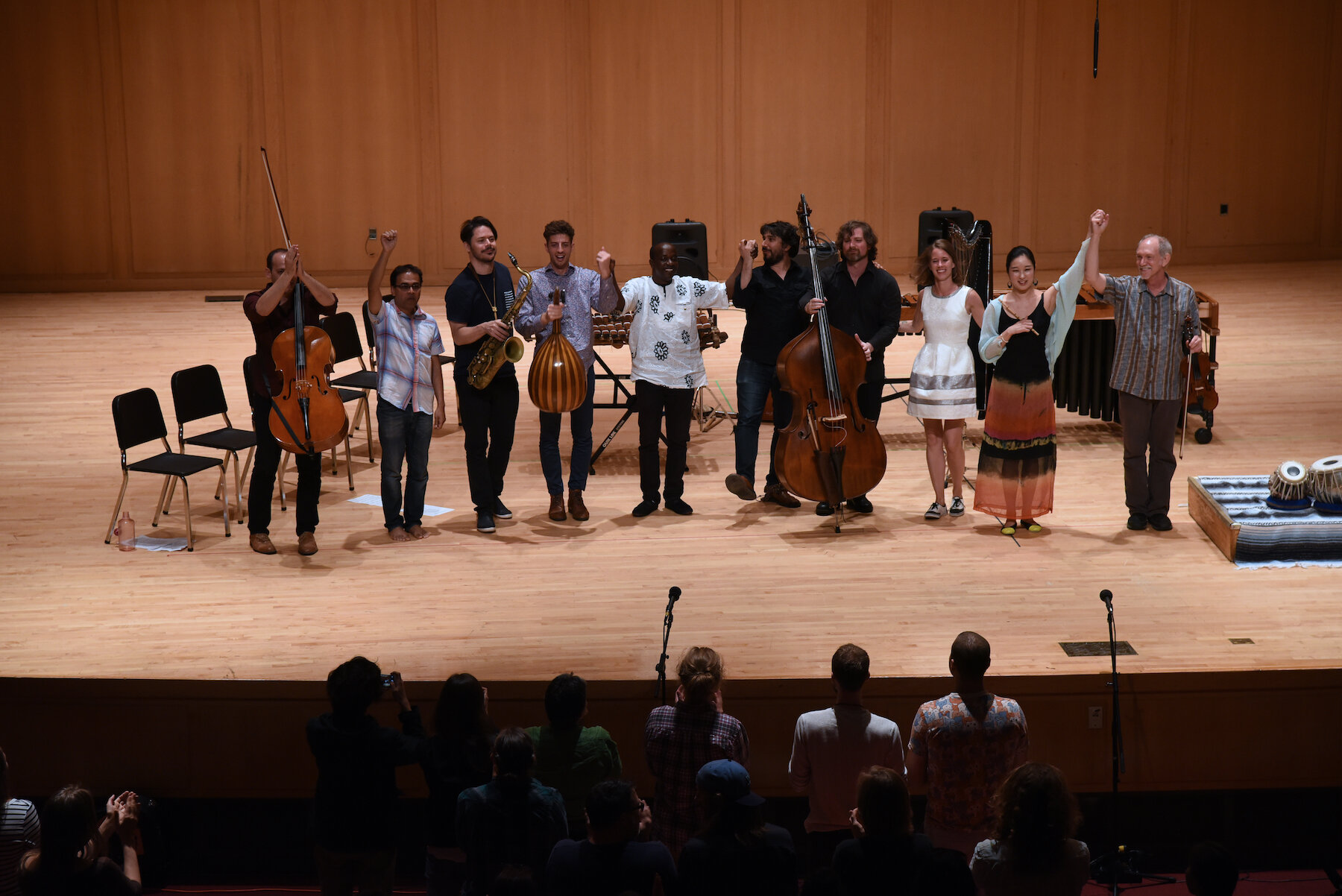
How has the pandemic affected you as an artist?
Observing the catastrophic impact the virus has had on our arts community (not to mention the world at large), I realize how very lucky I am to have had continuous work throughout the pandemic. Although I didn't have a private teaching practice prior to March 2020, I did run a free monthly online platform for harpers across the globe to come together, learn, and ask questions. During my travels, I had met so many harp players, particularly in rural communities, who didn't have access to a harp teacher. This meant that come March 2020 I was lucky to have access to thousands of harpers via my email list, and I immediately started teaching. It's made me even more grateful to the harping community, and I've learned a huge amount this year about pedagogy and building community online. It's also been an incredible opportunity to teach remotely at several institutions in both the US and Europe. I don't know when else in my life I would be able to teach one day at the Guildhall School in London and the next at Berklee in Boston! Since the fall, I've been teaching less, as arts organizations started to reimagine opportunity for artists, and have been involved in more commission-based work. With the rollout of vaccinations, there's a much brighter light on the future as in-person concerts and education opportunities are beginning to roll out.
I think the toughest part of this year has been the loneliness of not being able to connect with my clan, my artistic kindred-spirits. Music has always been my way of communicating and processing feeling, and it was an eye-opening experience to have to do more of that on my own this year. I can't wait to get back to making in-person music, creating a suspended space for the audience to visit and experiencing the pure joy of doing what we do!
What kind of projects have you been working on and what can we expect in the coming months or year?
Last October I put out an album called The Harpweaver – a project inspired by a lot of old Music-Hall-era melodies and the poetry of the great Jazz-age American poet, Edna St Vincent Millay. It hones in on the idea of artistic nostalgia which resonated perfectly with the isolation of the lockdown we were experiencing. When we can't be with those that we love, surely the next best thing is experiencing 'sounds' of home?
For obvious reasons, we weren't able to tour this project, and I'm thrilled to be touring it with the Grammy-nominated Aizuri Quartet through 2022.
I'm also excited to be doing a series of performances with the fantastic Pakistani singer Arooj Aftab. I've been working with Arooj for around 6 years now, and her music is balm for the soul – dark, re-imaginings of Sufi poetry. We'll be touring as the Vulture Prince Ensemble through the next year in the US and Europe. AND of course, I'm beyond excited to start creating with my Silkroad family as we shape and create the reemergence of the ensemble under the exciting new artistic leadership of Rhiannon Giddens. There's a great buzz among the Silkroad community at present, and I'm sure it's going to be channeled into a very special performance for the 2022 season.
What are you listening to these days?
Arooj Aftab –Vulture Prince (Dreamy, dark re-imaginings of Sufi Poetry)
Ye Vagabonds – The Hare's lament (Two Irish brothers, singing and playing in the vein of the great Paul Brady/Andy Irvine. I've listened to this album a bazillion times!)
Martyn Bennett – Grit (Martyn Bennet was a ground-breaking force in the Scottish Music scene with his unique fusion of Electronic Club Music and traditional Scottish music. He's a musical hero of mine and this, his last, album is focused on sampling old-Scottish recordings (many from the Outer Hebrides) and creating an exhilarating sound that's totally his own.)
Toumani Diabate and Ali Farka Touré – In the Heart of the Moon (Two of the most important West African Musicians on the planet. This is just the best!)
Sarah Jarosz – World on the Ground (Sarah is one of my favorite singer-songwriters on the scene today. I think this is her best work yet.)
What advice would you give to a young musician who has now read through all of these questions?
Be curious and work hard. I think that curious people live happy lives. Their ears and hearts always open to new sounds and ideas that fuel creativity and contentment. Work hard and make everyone else sound as good as they possibly can.
